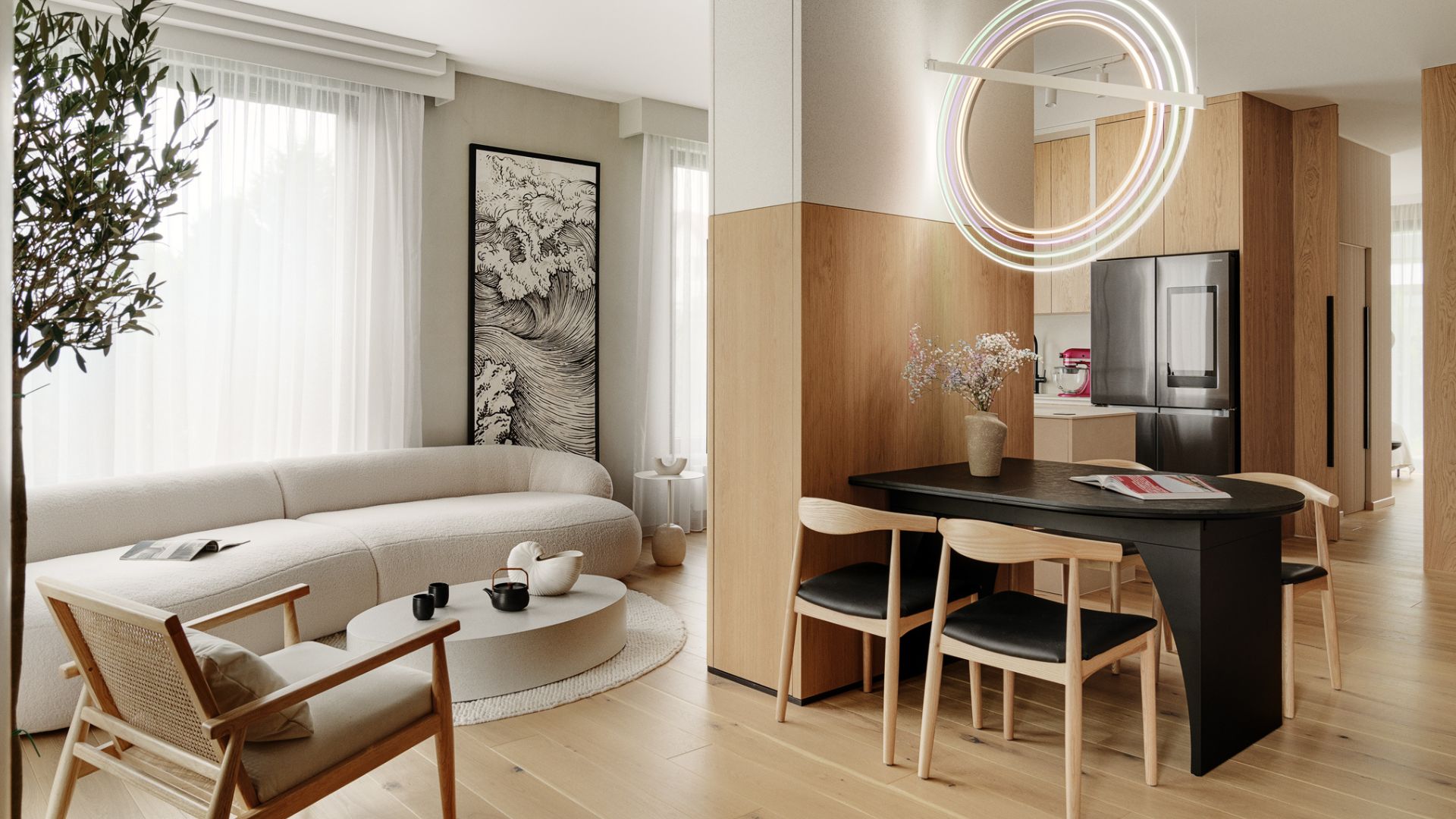
Open-concept areas are often praised for their airiness, but they can sometimes feel a bit too expensive if not approached thoughtfully. Open-plan spaces often need a little extra help to feel cozy and warm.
Open-concept spaces, along with other cozy living room ideas, require a balance of function and aesthetics. The lack of separate rooms and the natural zoning this offers mean you need to approach the interior slightly differently. You want the open-plan space to remain open and large but not cold. We love a bit of warmth in a home.
Whether you're designing your space from scratch or considering a living room makeover, there are proven methods for creating a sense of coziness in your open-concept living areas. And here's how you can do just that, according to designers.
1. Zone With Furniture for Subtle Separation
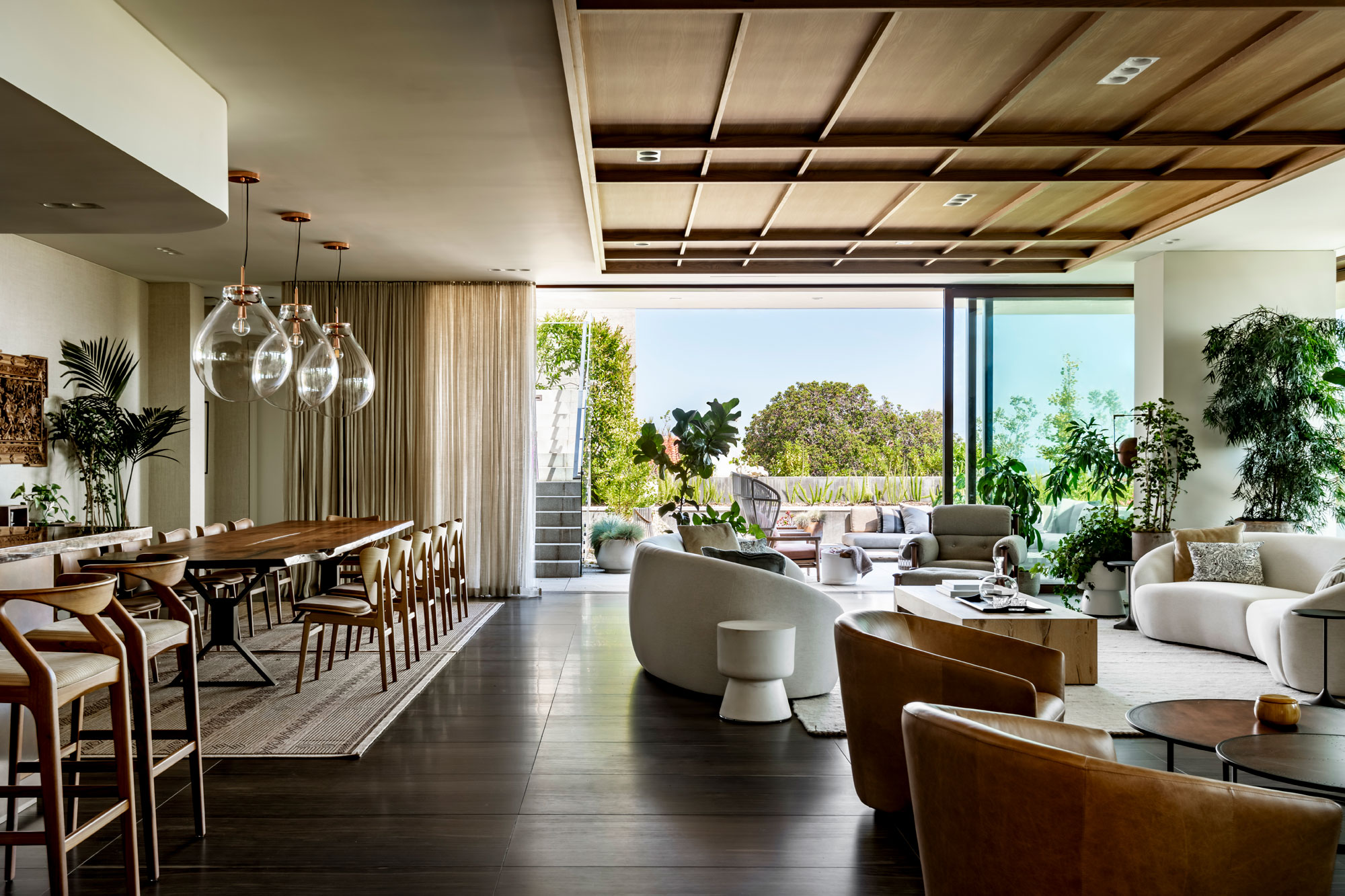
In open-concept spaces, furniture should act as soft dividers. "Consider using backless bookshelves or slim console tables instead of traditional walls to separate areas without blocking sightlines," says interior professional and home improvement expert Tony Hoany from What A Room Showroom. "A circular dining table can define the eating zone while creating visual contrast with rectangular living room furniture."
For instance, try adding this Mid-Century Green Swivel Accent Chair from Amazon in the living area for versatility. According to Tony, swivel chairs help to create boundaries but also can rotate to face other zones during gatherings.
To zone your home, I'd also recommend a large rug such as the Hayhurst Hand-Tufted Wool Rug from Wayfair to place under the sofa, and a coffee table can frame the living area.
A statement light fixture like this Oval Capiz Chandelier from Anthropologie over the table anchors the space and turns it into a cozy dining room. Use the kitchen island to separate the kitchen from the rest of the area while maintaining a flow.
2. Layer Textures For Warmth
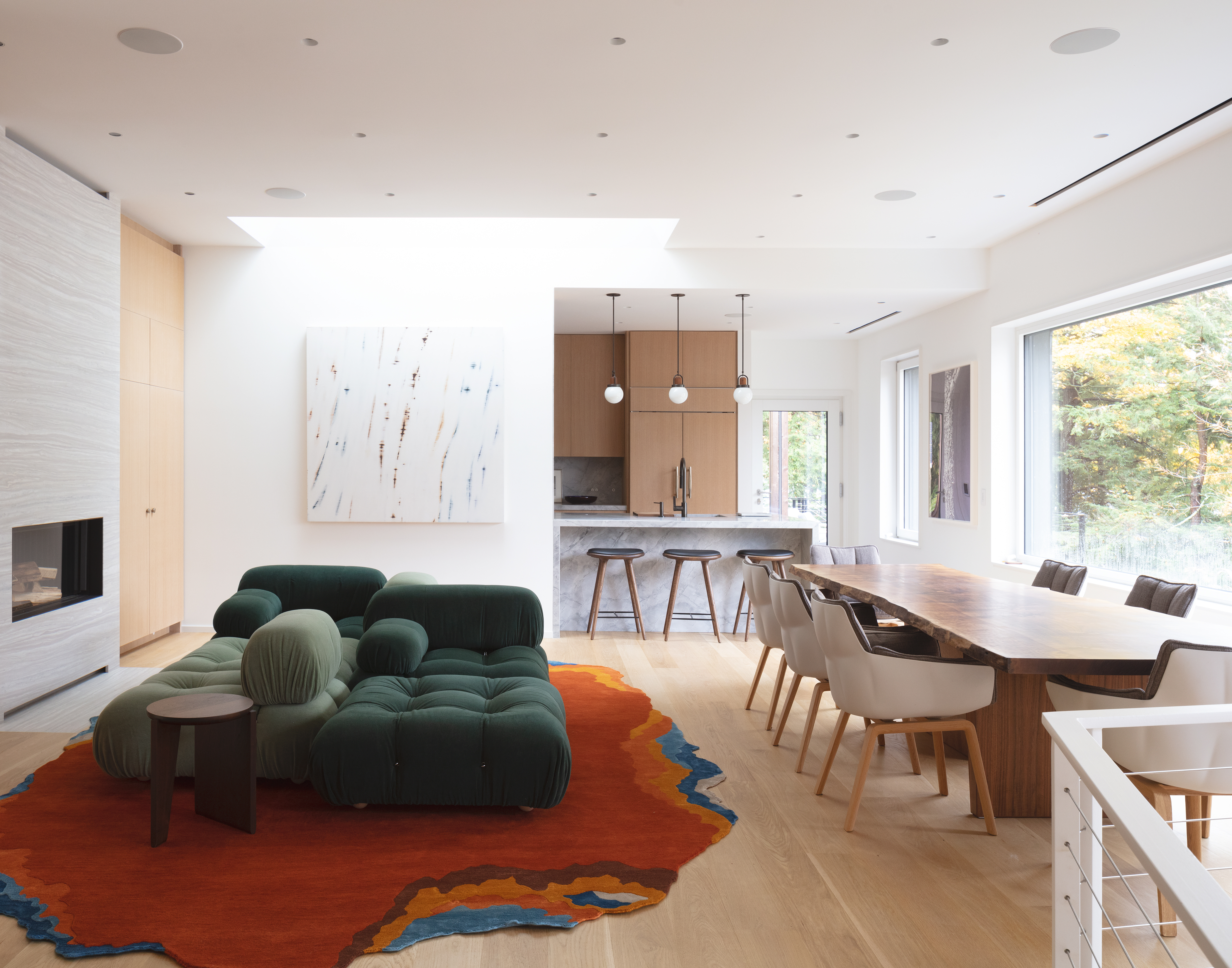
Open layouts can feel sterile without variety, especially in a modern home, so with these spaces, strive for warm interior design choices.
"Adding wood accents to an open space also helps to create a cozy, homey atmosphere," suggests Nicole Saunders, interior design specialist and founder of The Design Build Vault. "Consider using wood kitchen cabinets for a rustic touch. Add statement ceiling beams in the living area, or even incorporate smaller wood elements like side tables or shelves. These touches will add texture and warmth, making the entire area feel inviting and comfortable."
Opt for textured furniture, such as textured sofas or velvet accent chairs, to create an inviting feel. Pair them with a leather ottoman or a natural wood coffee table to balance softness with structure. Subtly mixing materials in open spaces will add cozy layers without clutter.
3. Blend Colors Across Spaces
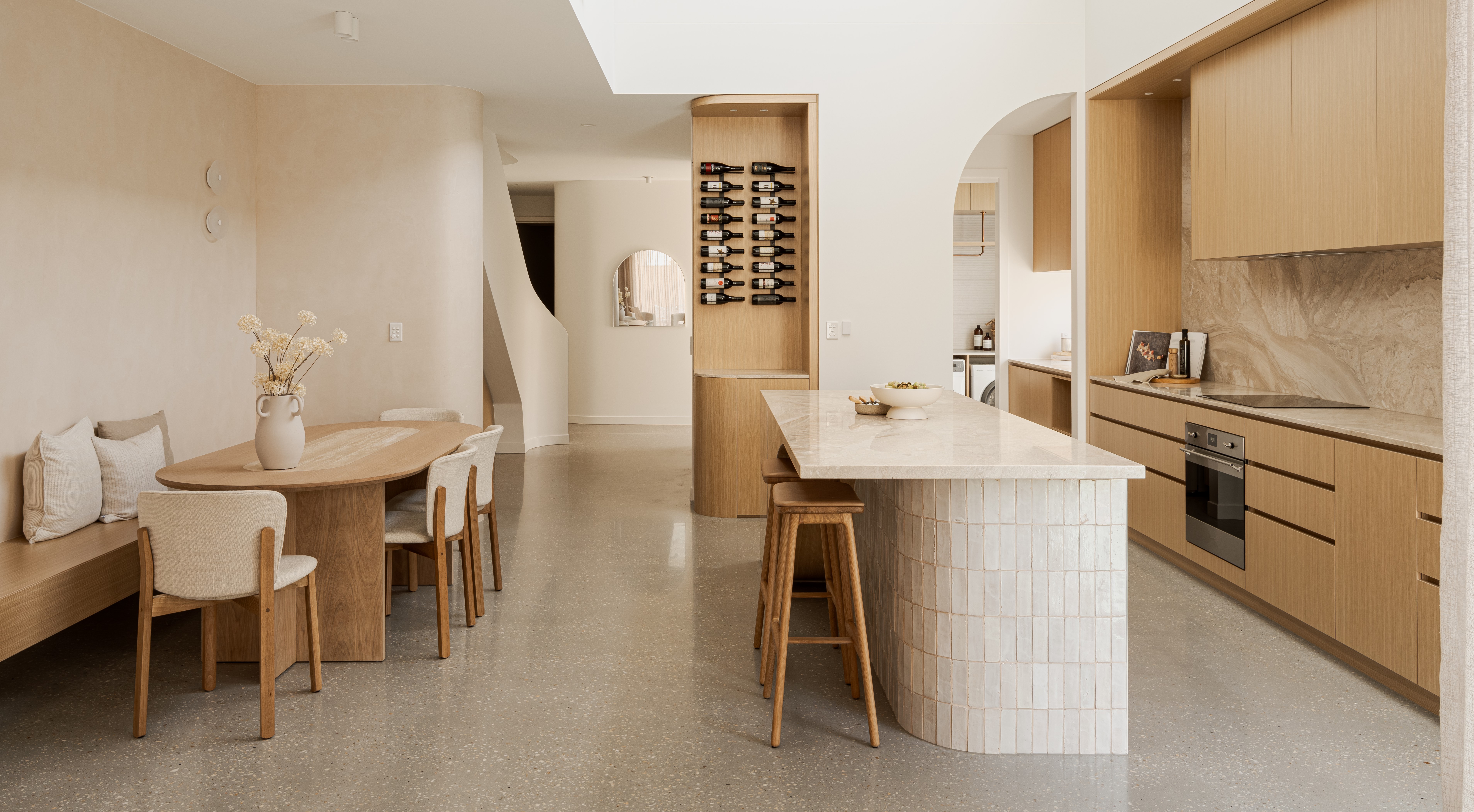
Opting for warmer tones in your color scheme can visually warm up the space. Whether through paint, accent walls, or decor items, colors like deep reds, soft yellows, or earth tones can make large spaces feel more intimate. Knowing how to create a color palette for your home will grant you an elevated open concept.
You can also use consistent but slightly varied palettes to unify the open concept. For example, pair a navy sofa with dining chairs featuring navy upholstery but natural wood frames. This creates a cohesive yet intimate vibe, tying zones together without erasing their individuality.
4. Create Multi-Purpose Areas
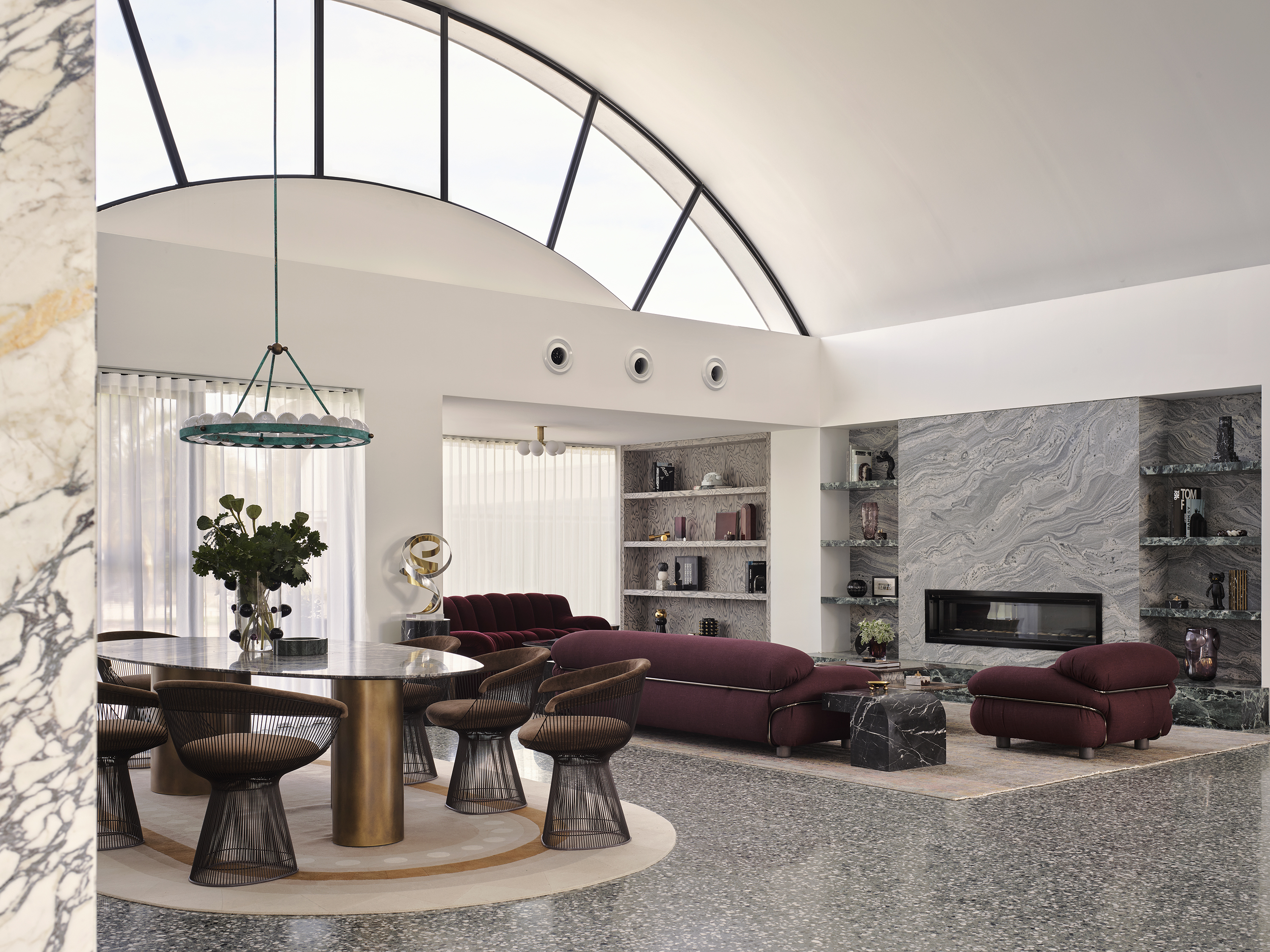
When trying to make an open concept home feel cozy, Brad Smith, CEO and Lead Interior Designer at Omni Home Ideas suggests that every inch of an open layout should serve a purpose. "Turn an unused corner near the kitchen into a cozy coffee nook with a compact armchair, a side table, and a standing lamp," says Brad. "Choose furniture that aligns with the style but introduces warmth, like a vintage-looking bar cart that also stores mugs and teas."
Often, people forget to leave negative space when designing their homes. "Leaving some negative space is key to keeping the area from feeling cluttered," continues Brad. "Allowing breathing room between furniture pieces and decor creates a sense of balance and ensures the space feels open yet comfortable. Opt for minimalist shelving with a few statement items rather than overloading with knick-knacks."
5. Be Smart With Lighting
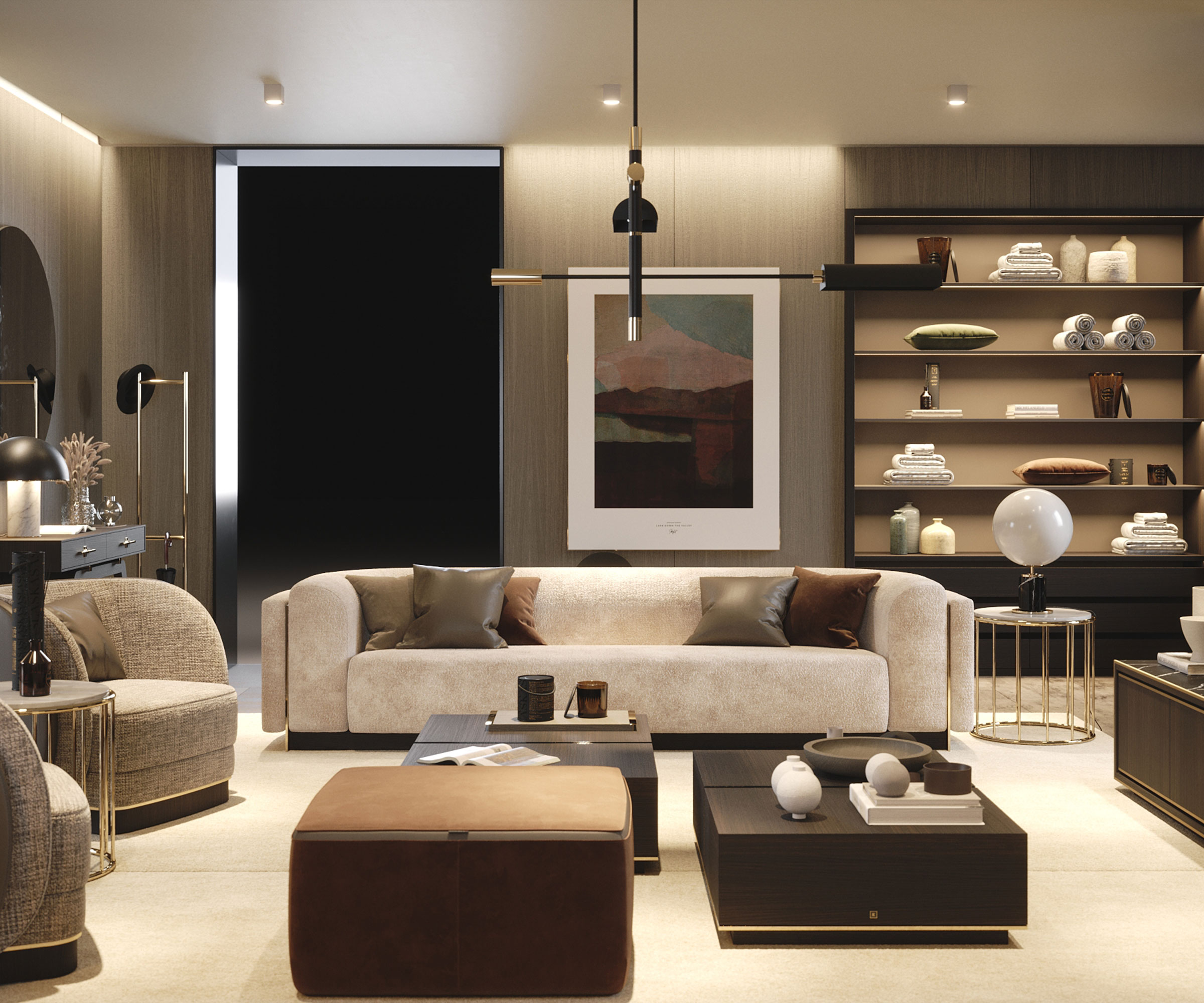
Create a cozy atmosphere by layering different types of lighting. Use ambient lighting for overall illumination, task lighting for functional areas to create a cozy kitchen, and accent lighting to highlight specific features. This approach helps create warmth and reduces the stark feeling of a large open space.
"I like to layer lighting with dimmable overhead fixtures, table lamps, and even string lights to create ambiance," explains architect and designer, Camille Vu of SE DÉA. "In my own home, I added pendant lights over the kitchen island and warm-toned lamps in the living room to make the spaces feel distinct yet connected."
Installing dimmable light fixtures allows you to adjust the brightness according to the mood you want to set. Lower lighting in the evenings can create an intimate, cozy feel, making the space feel more inviting and relaxed, even in an open layout.
"Choose warm-toned LED bulbs (around 2700K) to make the open-concept area feel comfortable," continues Camille. "Cooler tones can make large spaces feel sterile, whereas warm lighting brings a soft, glowing warmth that makes the entire room feel more cohesive and snug, perfect for evenings with family or friends."
Despite lacking traditional wall boundaries, open concepts do not have to lack warmth or character. By defining areas and layering textures, you can find the balance that transforms your open-concept space into a cozy, functional home.
It's important to remember that a home is not made cozy by clutter or by a lot of furniture — but by intentional design choices that make it feel lived-in.







